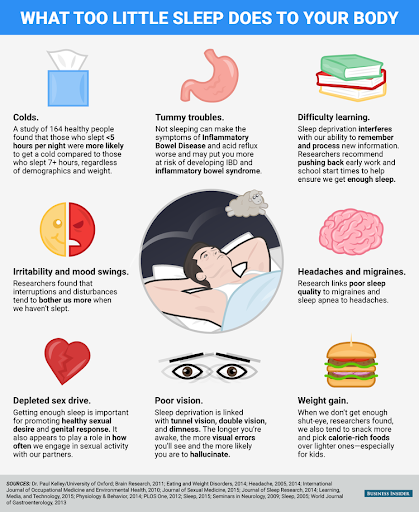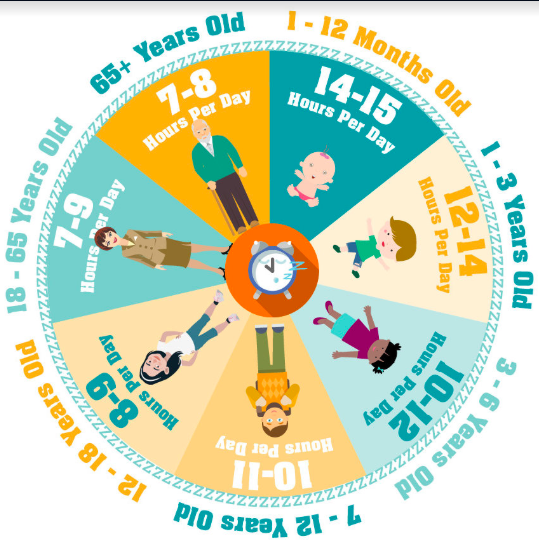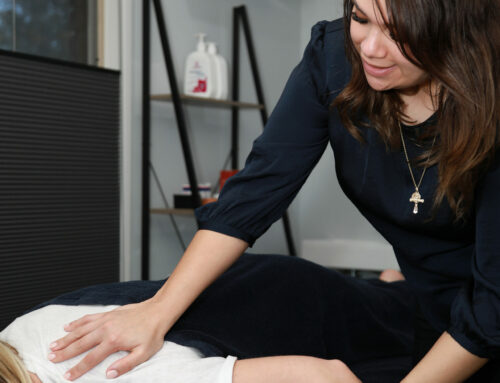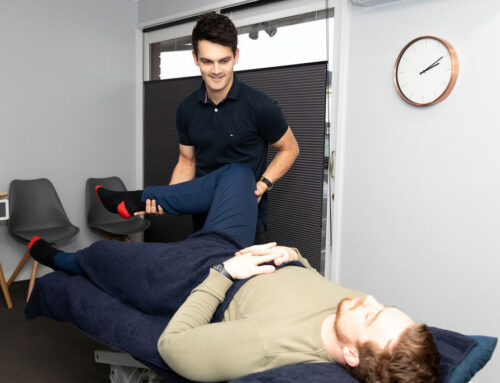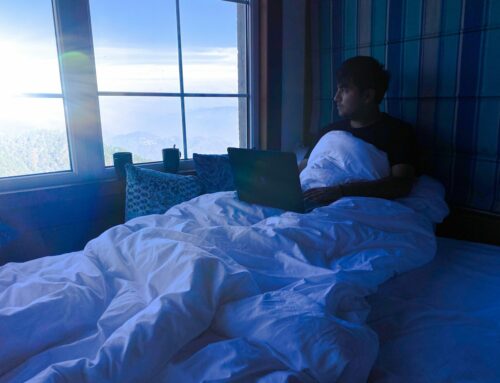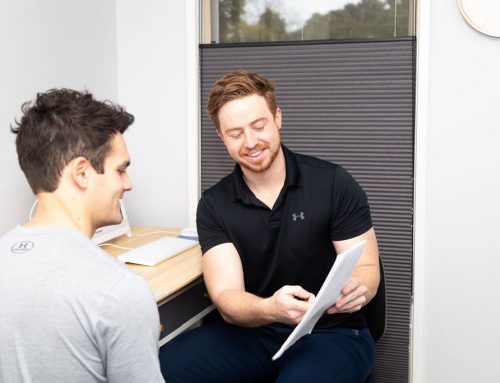Sleep is something that we all need and cannot live without. Some of us are very good at it whilst for others, it can be the cause of serious stress. A consistently good amount of sleep has innumerable health benefits. Conversely, a consistent lack of sleep can negatively affect wellbeing. Sleep should be prioritised, just like we prioritise a healthy diet and exercise.
As Osteopath’s we strive to treat each person as a whole, rather than merely tackle the injury they have presented with. This means we often discuss our client’s lifestyle, exercise, interests, work, diet, mental health and of course, how much sleep they are getting. All of the above can play a role in health and wellbeing and may have an influence on a client’s perception of pain and healing times.
Not Getting Enough in the Bedroom?
Image: https://www.businessinsider.com.au/health-effects-of-not-sleeping-enough-2015-12?r=US&IR=T
According to the Australian Sleep Health Foundation’s 2018 report, inadequate sleep cost Australia 66.1 Billion dollars due to health care, welfare and productivity losses. Moreover, the report found that
4/10 Australian adults are getting insufficient sleep.
As little as one week of poor sleep can decrease immune function and leave you more likely to get sick. Chronic inadequate sleep has been found to be a contributor to:
- Heart disease
- Obesity
- Depression
- Decision making
- Learning
- Increased risk of mental and physical illness
- Decreased ability to deal with pain
- Musculoskeletal pain such as headaches
Sleep can be adversely affected by:
- Work or travel schedule
- Caffeine
- Eating late
- Stress and anxiety
- Pain
- Poor sleep environment
How Can I Get Better in Bed?
Sleep is a very individual thing and what helps one person improve their sleep may not necessarily help someone else. What is important is to find the tips and tricks that help and use them to improve your performance between the sheets!
Below is a list of things to try in and out of the bedroom as well as things to try, and is just a starting point:
- Prioritise sleep
- Make yourself a sleep schedule
- Get exercise every single day
- Plan your day and get ready for the morning prior to bed
- Sleep in complete darkness
- If you are not falling asleep…. Get out of bed
For better sleep AVOID…
- Caffeine and nicotine in the late afternoon/evening
- Alcohol before bed – it can help you fall asleep but will affect sleep quality
- Large meals before bed
- Medicines that can disrupt your sleep (consult your pharmacist)
- Napping after 3 pm
- Lying in bed for longer than 20 minutes whilst trying to fall asleep… get up and try some of the To do’s.
For better sleep TRY…
- Keeping a consistent sleep schedule – sleep and wake at the same time each day.
- Relaxing before bed – read, music, stretching, foam roll
- Taking a hot bath before bed
- Putting your gadgets in another room (Yes. Even your phone… Instagram can wait)
- Keeping your room dark and cool
- Getting outside during the day and soaking up some sunlight
- Meditation – there are heaps of apps available (Smiling mind, sleep by headspace, sleepio etc)
- Timing your meals so that you are not hungry or too full at bed time
- Exercising for at least 30 minutes daily (not within 2-3 hours of bed)
- Having a break from screens before bed
- Investing in good pillows and mattresses
How Much is Enough?
Check out the UK’s Sleep Council recommendations for hours of sleep per night for different ages….
Image: https://sleepcouncil.org.uk/how-much-sleep-do-we-need/
Hopefully some of the above tips and tricks will help your performance in the bedroom! If you have any further questions about sleep, or any other health questions please feel free to email me at tom@pakenhamosteopathy.com.au. Rest up!
